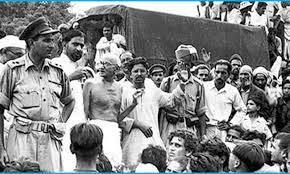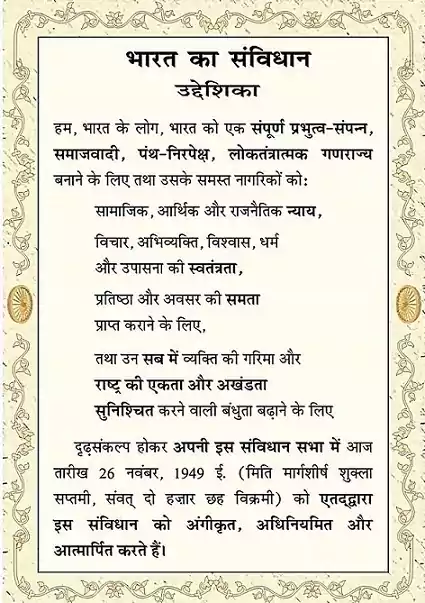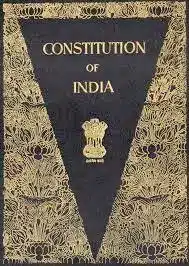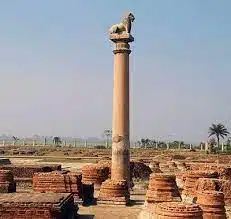Polity Questions And Solution Of Civil Services Prelims 2020
A Parliamentary System of Government is one in which
a) All political parties in the Parliament are represented in the Government
b) The Government is responsible to the Parliament and can be removed by them
c) The Government is elected by the people and can be removed by them
d) The Government is chosen by the Parliament but can not be removed by its before completion of a fixed term
Answer B)
Which part of the Constitution of India declares the Ideal of Welfare State?
a) Directive Principles of State Policy
b) Fundamental Rights
c) Preamble
d) Seventh Schedule
Answer A) Directive Principles of State Policy
Consider the following statements:
- The Constitution of India defines its basic structure in terms of federalism, secularism, fundamental rights and democracy.
- The Constitution of India provides for Judicial review to safeguard the citizens; liberties and to preserve the ideals on which the constitution is based.
Which of the statements given above is/are correct?
a) 1 only
b) 2 only
c) Both 1 and 2
d) Neither 1 nor 2
Answer B) Basic structure is not defined by Constitution so option 1 is incorrect.
One common agreement between Gandhism and Marxism is
a) the final goal of a stateless society
b) class struggle
c) abolition of private property
d) economic determinism
Answer A)
In the context of India which one of the following is the characteristic appropriate for bureaucracy?
a) An agency for widening the scope of parliamentary democracy
b) An agency for strengthening the structure of federalism
c) An agency for facilitating political stability and economic growth
d) An agency for the implementation of public policy
Answer D) An agency for implementation of public policy
The Preamble to the Constitution of India is
a) a part of the Constitution but has no legal effect
b) not a part of the Constitution and has no legal effect either
c) a part of the Constitution and has the same legal effect as any other part
d) a part of thee constitution but has no legal effect independently of other parts
Answer. d
With reference to the provision contained in Part IV of the Constitution of India, which of the following statements is/are correct?
- They shall be enforceable by courts.
- They shall not be enforceable by any court.
- The principles laid down in this part are to influence the making of laws by the State.
Select the correct answer using the code given below:
a) 1 only
b) 2 only
c) 1 and 3 only
d) 2 and 3 only
Answer. d
consider the following statements:
- According to the Constitution of India, a person who is eligible to vote can be made a minister in a state for six months even if he/she is not a member of the Legislature of that State
- According to the Representation of People Act, 1951, a person convicted of a criminal offence and sentenced to imprisonment for five years is permanently disqualified from contesting an election even after his release from prison
Which of the statements given above is/are correct?
a) 1 only
b) 2 only
c) Both 1 and 2
d) Neither 1 nor 2
Answer. D
Consider the following statements
- The President of India can summon a session of the parliament at such a place as he/she thinks fit.
- The Constitution of India provides for three sessions of the Parliament in a year. but it is not mandatory to conduct all three sessions.
- There is no minimum number of days that the Parliament is required to meet in a year.
Which of the statements given above is/are correct?
a) 1 only
b) 2 only
c) 1 and 3 only
d) 2 and 3 only
Answer. c
Consider the following statements:
- Aadhaar medanta cannot be stored for more than three months.
- State cannot enter into any contract with private corporations fro sharing of Aadhaar data.
- Aadhaar is mandatory for obtaining insurance products.
- Aadhaar is mandatory for getting benefits funded out of the Consolidated Fund of India
Which of the statements given above is/are correct?
a) 1 and 4 only
b) 2 and 4 only
c) 3 only
d) 1,2 and 3 only
Answer b) 2 and 4 Only
Rajya sabha has equal power with Lok Sabha in
a) the matter of creating new All India Services
b) amending the Constitution
c) the removal of the government
d) making cut motions
Answer B)
With reference to the funds under Members of Parliament Local Area Development Scheme (MPLADS), which of the following statements are correct?
- MPLADS funds must be used to create durable assets like physical infrastructure for health, education etc.
- A specified portion of each MP’s fund must benefit SC/ST populations
- MPLADS funds are sanctioned on yearly basis and the unused funds cannot be carried forward to the next year.
- The district authority must inspect at least 10% of all works under implementation every year.
Select the correct answer using the code given below:
a) 1 and 2 only
b) 3 and 4 only
c) 1,2 and 3 only
d) 1,2 and 4 only
Answer D)
Which one of the following categories of Fundamental Right incorporates protection against untouchability as a form of discrimination?
a) Right against Exploitation
b) Right to Freedom
c) Right to Constitutional Remedies
d) Right to Equality
Answer D ) Right to Equality
In India, separation of judiciary from the executive is enjoined by
a) the Preamble of the constitution
b) a Directive Principle of State Policy
c) the Seventh Schedule
d) the conventional practice
Answer b)
Along with the Budget, the Finance Minister also other documents before the Parliament which include “The Macro Economic Framework Statement. The aforesaid document is presented because this is mandated by
a) Long standing parliamentary convention
b) Article 112 and Article 110(1) of the constitution of India
c) Article 113 of the Constitution of India
d) Provisions of the Fiscal Responsibility
Answer. d
A constitutional government by definition is a
a) government by legislature
b) popular government
c) multi-party government
d) limited government
Answer. d
Other than Fundamental Rights, which of the following parts of the constitution of India reflect-reflects the principles and provisions of the Universal Declaration of Human Right (1948)?
- Preamble
- Directive Principles of State Policy
- Fundamental Duties
Select the correct answer using the code given below:
a) 1 and 2 only
b) 2 only
c) 1 and 3 only
d) 1, 2 and 3
Answer. d)
In India Legal Services Authorities provide free legal services to which of the following type of citizens?
- Person with an annual income of less than ₹ 1,00,000
- Transgender with an annual income of less than ₹ 2,00,000
- Member of Other Backward Classes (OBC) with an annual income of less than ₹ 3,00,000
- All Senior Citizens
Select the correct answer using the code given below:
a) 1 and 2 only
b) 3 and 4 only
c) 2 and 3 only
d) 1 and 4 only
Answer. a
Also refer :
- Download the pdf of Important MCQs From the History Of Ancient India
- List Of Important Inscriptions In India
- Geography Study Materials : click here.
- Science study materials.






